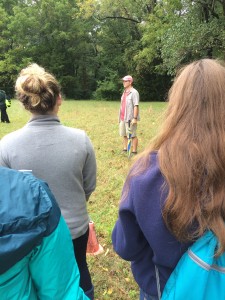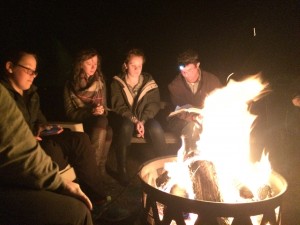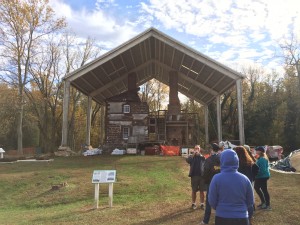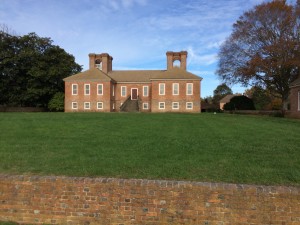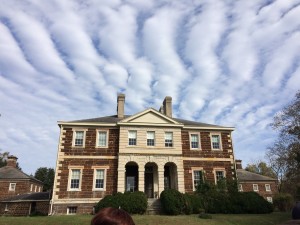American Literature [ENGL 203]
My American Literature class was one I took in order to meet the third general education goal every Longwood student must meet and was based on plays, books, and poems about Virginia and/or written by Virginian authors. To learn more about my experience with my American Literature class, visit the Goal 3 – American Literature page under my General Education Courses tab.
One aspect of this class that made it an Honors course was the inclusion of several field trips that related to the literary works we studied. For example, after the class read John Smith’s The Generall Historie of Virginia, New-England, and the Summer Isles and James Nelson Barker’s The Indian Princess, we visited Werowocomoco (an archaeological site that used to be the home of Algonquin chief Powhatan, father of Pocahontas) as well as the Jamestown settlement. After the trip, we were able to compare and contrast what we had been learning in class and what we saw in public exhibits. We discussed that, when it came to public displays (such as museum exhibits), we noticed some patterns of white male glorification and somewhat of a lack of sympathy for Native Americans.
By far, my favorite trip my American Literature class took was one when we were able to travel to and tour plantation homes after reading numerous works about plantation life. Our trip began with an overnight stay the night before Halloween at Hull Springs Farm, owned by Longwood University. My Honors family was able to bond with each other and with our professor, Dr. John Miller, and his good friend, the archaeologist who accompanied us on our Werowocomoco/Jamestown trip as well as this one. We sat around a campfire, making small talk and s’mores while Dr. Miller read Edgar Allen Poe stories.
The following day, we travelled to three formerly functioning plantation houses: Menokin, Stratford Hall, and Mt. Airy. Menokin currently sits underneath what looks like a giant carport, and one day will be encased in glass so that people can actually walk inside its ruins. It was formerly the home of signer of the Declaration of Independence Francis Lightfoot Lee. Stratford Hall, formerly the home of many generations of the Lee family (and where Robert E. Lee was born) is open to the public and still has archaeological work being done on the premises to uncover more about the history of the plantation. Mt. Airy is still inhabited by the family of John Tayloe II, son-in-law of Francis Lightfoot Lee. The family gives tours to groups, hosts hunting parties, and even allows weddings to be held there. It was intriguing to see which parts of the home and grounds have been modernized and which parts have been kept very true to the historic state of the plantation.
I was able to take so much away from my American Literature class. Being able to tour so many places that related to the material we were studying was so fulfilling. Even better was getting to tour several of the places with the archaeologist who was actually able to take us “behind the scenes” and show us some of the progress he and his team had been making with their digs. We had the opportunity to learn the incomplete, uncertain, but very real historical process behind how the glossy, fairy-tale-like history of these places is presented to the public, which was an experience I will likely never have again. Museums and playwrights/authors/poets are very similar in that they have a tendency present what their audience wants to see or what they want their audience to see rather than what might be the whole, complete story. When dealing with any piece of history, it is so important to remain objective; what better way to learn this lesson than to see it firsthand?
